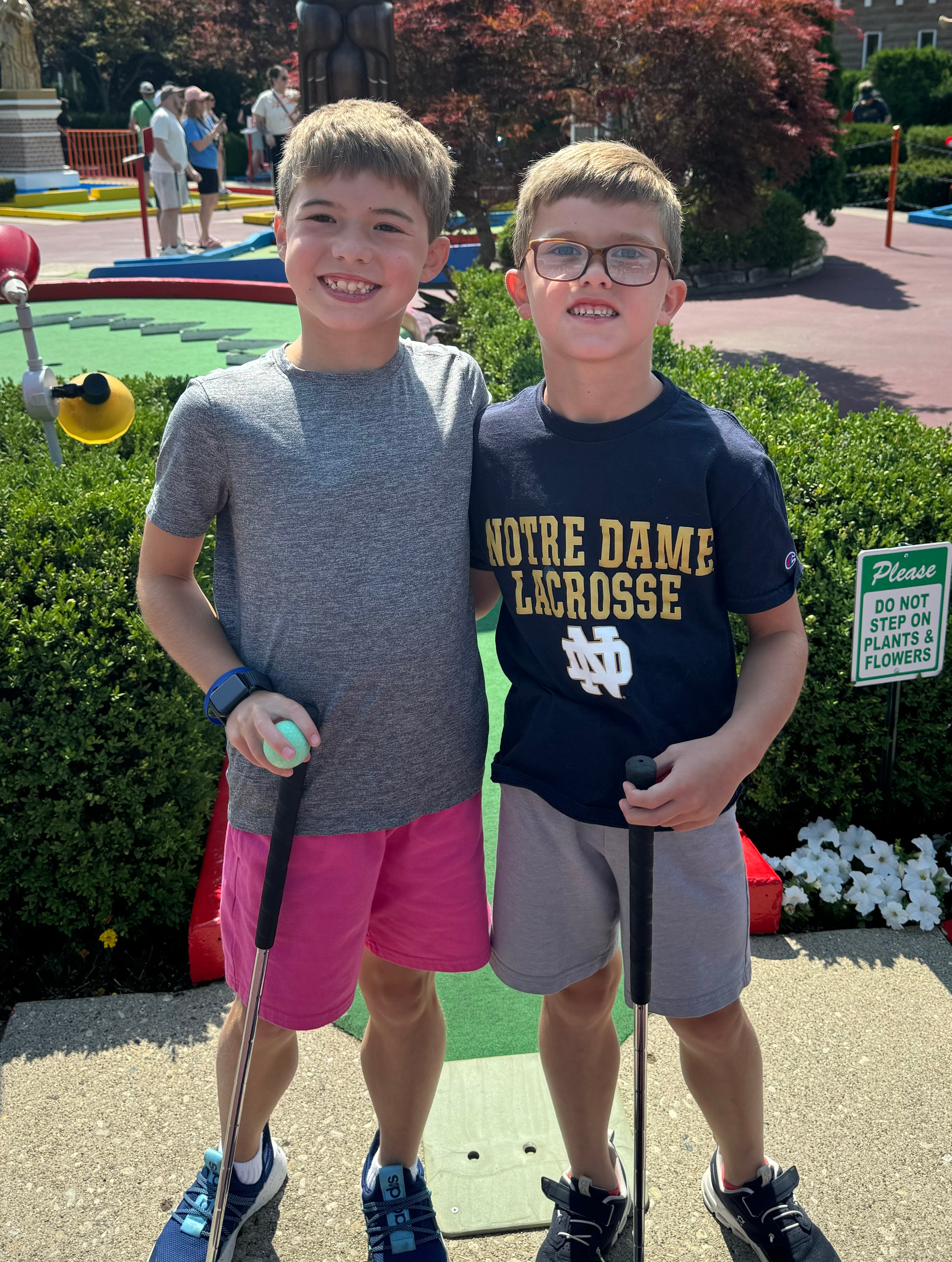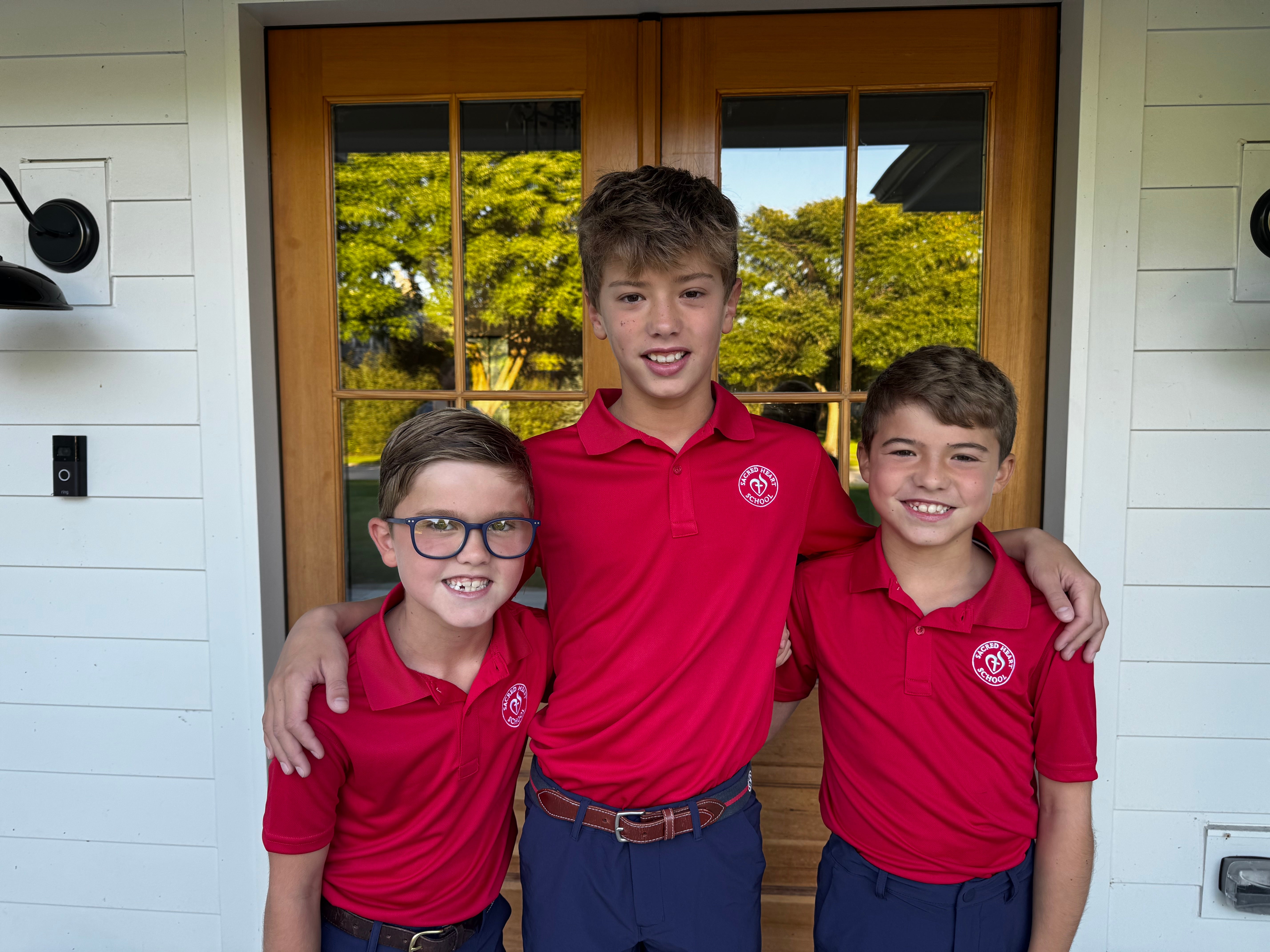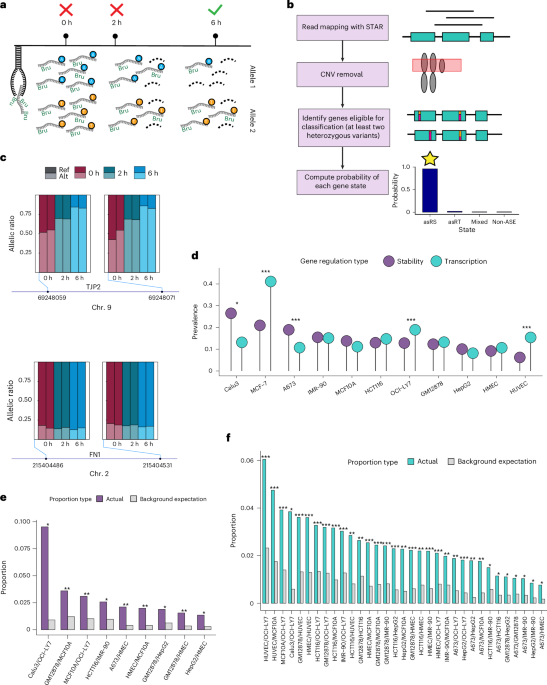For Alison Joseph, watching her 9-year-old son Noah splashing around in the swimming pool this summer for the first time was bittersweet.
Overjoyed that Noah had learned to swim, the mom was simultaneously reminded that her other son, 10-year-old Hunter, couldn’t join in.
“Hunter sees his younger brother and how well he’s doing,” Alison told The Independent. “And I think there is some sadness that he wants to be able to play outside longer, and do all the things that his brother is now finding so much easier.”
Noah and Hunter both have Duchenne muscular dystrophy (DND), the most severe form of the genetic disorder. The disease causes muscle degeneration and weakness due to a mutation in the gene that produces dystrophin, a protein that protects muscle fibers from breaking down.
The disease, which mostly affects boys, gets worse over time. It makes it difficult to walk, run, jump, and play, with children often delayed in reaching milestones like crawling, walking and talking. The boys will likely use wheelchairs when they are teenagers, and life expectancy ranges between 30 and 40 years old.

In March, Noah received pioneering gene therapy to improve his mobility and quality of life through Alison’s health insurance plan. But when Hunter’s application was submitted in late May, authorization for exactly the same treatment was denied.
“The reason on our denial letters is that it’s not medically necessary,” the mom-of-three said from her home in Winnetka, just outside Chicago. “It was very blindsiding. They didn’t ever deny my other son, it was approved the first go. So I was very taken aback.”
Alison, a physician, and her husband William, who works in finance, are now grappling with how to move forward following the decision from health insurance giant, Blue Cross Blue Shield. They say they have been put in an impossible and “heartbreaking” situation.
The Independent contacted Blue Cross Blue Shield for comment, and asked why the treatment was only covered for Noah when both boys have the same disease. The Independent also asked the company whether it would reconsider the denial in Hunter’s case and to respond to accusations that the decision was “unfair.”
“To protect our member’s privacy, we do not publicly discuss individual cases,” a Blue Cross Blue Shield spokesperson said. “We do want our members to know that medical experts, including doctors, are involved in reviews to ensure the treatments and services our members receive are evidence-based and not duplicative. Decisions are guided by nationwide best practices for care, helping to identify what has proven successful for members in the past.”
With every passing day, Hunter’s condition gets worse.
“His muscle is wasting away every day,” Alison, 44, said. “He’s going to be in a wheelchair in the next few years and it just doesn’t seem right that they are not going to allow him to get this treatment. They’re wasting his time. And it’s just not fair.”
The brothers were diagnosed with DND in 2017 after tests showed Hunter had elevated liver enzymes, which is indicative of the condition. Three months later, when further tests showed the levels had not returned to normal, a specialist delivered the devastating diagnosis.
DND is a genetic disorder and so Noah and 12-year-old brother Carter were tested following Hunter’s diagnosis. Carter did not have the disease, but Noah’s results came back positive. It was a triple blow for Alison, who not only had to process the fact that two of her children had the life-limiting illness but that she was a carrier of the disease.
The parents and their eldest son Carter have had to go through the pain of witnessing Hunter and Noah gradually decline over the years, as DND has no cure.
But in 2023, there was a glimmer of hope when the gene therapy, Elevidys, manufactured by Sarepta Therapeutics, received accelerated approval from the U.S. Food and Drug Administration.

The new treatment, which comes with a $3.2 million price tag, helps improve muscle function and motor skills. So far, over 900 patients have had the treatment, the company says, but given how novel the medicine is, critics say there is limited evidence that the benefits of the treatment outweigh the risks.
But doctors are cautiously optimistic.
“All these newer gene transfer therapies are opening doors for these boys to possibly live longer and lead a good quality of life,” said Dr Aravindhan Veerapandiyan of Arkansas Children’s Hospital. “It’s changing the trajectory of the disease, changing the trajectory of their lives, improving the quality of life for the boys and their families.”
Elevidys is not without controversy. It was approved by the FDA in 2023 but limited to children between 4 and 5 years old, who are able to walk. In 2024, the treatment was expanded to include patients 4 years and older.
But Public Citizen, a nonprofit which acts an ethics watchdog for clinical trials, said the FDA approval was “ill-advised” because it was “not supported by favorable FDA scientific reviews”. Nor did clinical trials demonstrate that children with the disease “maintained or regained gross motor abilities”, the group added.
There was heightened concern in July when the FDA told Sarepta to suspend distribution of the drug while the agency investigated the death of an 8-year-old boy. The FDA subsequently concluded the death was “unrelated to the gene therapy product itself” but the agency has still recommended the company pause distribution of the drug in patients who cannot walk. However, this doesn’t apply to Noah or Hunter, who can both still walk and play with their older brother, Carter.
For Alison and William, Elevidys was worth trying. “We had very serious conversations with our doctors, but we also know the natural progression of the disease,” Alison said. “So we were willing to take that risk.”
Noah has had “very obvious and noticeable improvements” since his treatment in March at Arkansas Children’s Hospital in Little Rock, his parents said. Elevidys was administered as a one-time infusion.
“End of day fatigue and leg pain was something that he complained of frequently, and he has not complained of it once since getting gene therapy,” Alison said. “He learned how to swim this summer. His overall endurance is so much better.”
Hunter, meanwhile, continues to suffer.
“So many people now will say, Oh my gosh, Noah’s doing so well… We can’t believe he’s swimming, he’s this, he’s that,” Alison said.
“And, I’m like, Oh my gosh, please don’t let Hunter hear… because I know that he’s thinking that he’s not able to do those things. And it’s just heartbreaking.”
Before Noah’s treatment was given the green light by the insurance company, both boys underwent their routine, annual cardiac MRIs to take a closer look at their hearts.

A cardiologist determined that the risk with the treatment was greater for Hunter than it was for Noah, whose MRI showed normal cardiac function for a child. Therefore, the family decided that Noah should have the treatment first.
“We collectively made a decision that the safest thing to do is give it to his brother,” Alison explained.
The insurance company gave the green light for Noah’s treatment on November 1, 2024, and he received it a few months later in March 2025.
After Noah’s treatment went well, doctors, including cardiologists, then gave their approval in April for Hunter to have the same treatment. BCBS denied coverage for the treatment in June.
“We were so excited that they gave us the green light. It was like, Oh my gosh, let’s go. Let’s do it,” Alison recalled. “We told Hunter, ‘It’s your turn,’ never expecting the insurance to say no.”
The mom asked: “I mean, how could they say no to him when they already said yes to his brother and he successfully had it?”
A few weeks ago, after digging through health insurance paperwork, Alison and William claim that after Noah received approval from BCBS in November 2024 for Elevidys, the insurance firm “quietly” updated company policy on January 1, 2025 to exclude the children’s specific DND mutation from coverage for the gene therapy.
“I don’t think it’s coincidence,” Alison said. “I think that they knew that we had another child and we were going to be seeking this out [again.]”
The insurance company did not address the allegation when The Independent contacted them for comment.
The parents are running out of options to get their son the life-improving treatment unless BCBS reconsiders the claim.
They have appealed the decision with the insurance giant.
The couple has also contacted representatives in Arkansas, where Hunter would receive the gene therapy treatment, and in their home state of Illinois.
Arkansas state representatives Andrew Collins and Tippi McCullough both offered the family assistance, while Arkansas U.S. Senator Tom Cotton supported the family in reaching out to the federal Office of Personnel Management, Alison said. The parents have also consulted with a lawyer to weigh their options.
“I am starting to feel helpless,” said Alison. “I feel like we have tried to make the best decisions for them all these years, and now the choice has been taken away from us.”
Time is not on Hunter’s side and the gene therapy is his best chance of having the most comfortable life possible, his parents said.
“This is the age when the boys really do start to decline pretty quickly,” said Alison. “We have seen a significant decline in him in the last few months, which is just so scary.”
“The therapy can stop the disease’s progression. We are just watching him decline before our eyes.”
Source link

:max_bytes(150000):strip_icc()/a-very-jonas-christmas-kevin-nick-joe-jonas-2-090425-43d3c77f7c32488bbc48b82436f85643.jpg)